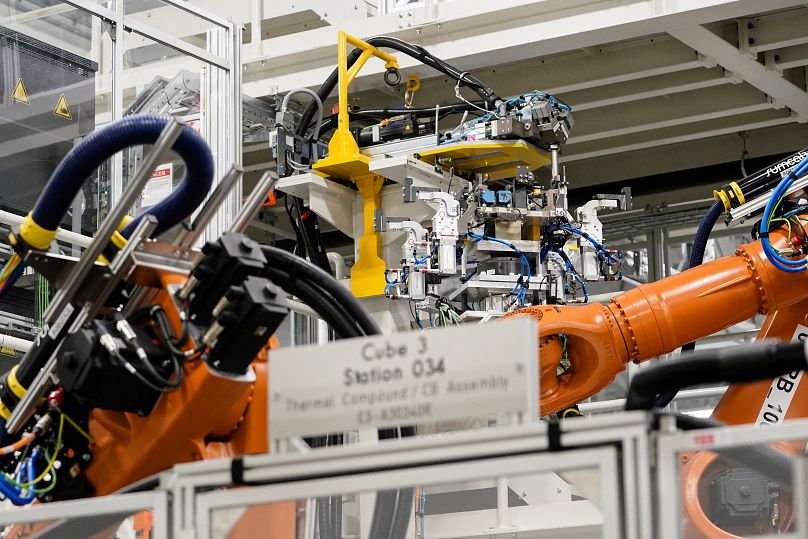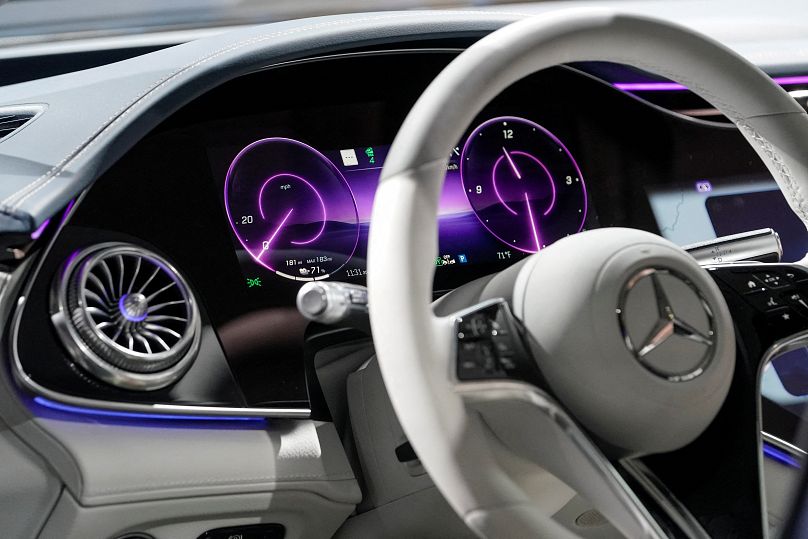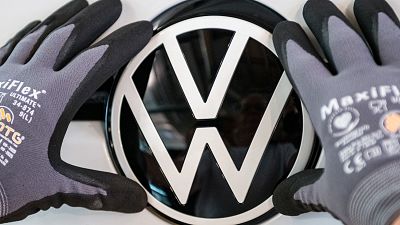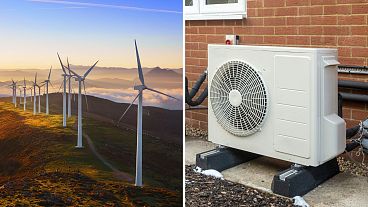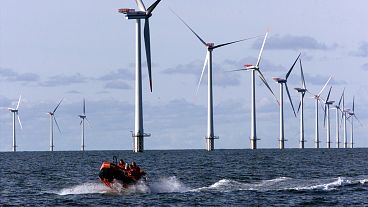The rising price of fossil fuels and environmental concerns mean people are still buying electric cars despite an increase in cost.
Buyers around the world are lining up to purchase electric vehicles (EVs) this year – even with prices surging.
It is flipping the script on a decade and a half of conventional auto industry wisdom that EV sales would break out only after battery costs dropped below a threshold that was always just over the horizon.
This year, EV demand has stayed strong even as the average cost of lithium-ion battery cells soared to an estimated $160 (€148) per kilowatt-hour in the first quarter from $105 (€97) last year. Costs rose due to supply chain disruptions, sanctions on Russian metals and investor speculation.
For a smaller vehicle like the Hongguang Mini, the best-selling EV in China, the higher battery costs added almost $1,500 (€1,390), equal to 30 per cent of the price of the car.
But petrol and diesel fuel costs for internal combustion vehicles have also skyrocketed since Russia invaded Ukraine, and experts noted that environmental concerns also are pushing more buyers to choose EVs despite the volatile economics.
Manufacturers from Tesla to SAIC-GM-Wuling, which makes the Hongguang Mini, have passed higher costs on to consumers with double-digit price increases for EVs.
And more increases may be coming. Andy Palmer, chairman of Slovak EV battery maker InoBat, says margins in the battery industry are already wafer-thin, so “rising costs will have to be passed onto carmakers.”
Vehicle manufacturers like Mercedes-Benz will likely shift increases to customers if their raw material prices keep rising. “We need to keep margins,” Chief Technology Officer Markus Schaefer told Reuters.
But shoppers have so far not been deterred. Global EV sales in the first quarter jumped nearly 120 per cent, according to estimates by EV-volumes.com. China’s Nio, Xpeng and Li Auto delivered record EV sales in March. Tesla delivered a record 310,000 EVs in the first quarter.
Consumers are not deterred by the cost of electric vehicles
“There is a different kind of tipping point that we seem to have hit — an emotional or psychological tipping point among consumers,” said Venkat Srinivasan, director of the Center for Collaborative Energy Storage Science at the US government’s Argonne National Laboratory in Chicago.
He said “more and more people” would buy EVs “notwithstanding the cost of the battery and the vehicle.”
This spike in battery costs could be a blip in the long-term trend in which technology improvements and growing production pushed costs down for three straight decades. Industry data showed that the $105 (€97) per kilowatt-hour average cost in 2021 was down nearly 99 per cent from over $7,500 (€6,950) in 1991.
Experts say battery costs could stay elevated for the next year or so, but then another big drop is probably in store. Big-ticket investments by automakers and suppliers in mining, refining and battery cell production, and a move to diversify raw material sources, are likely to tip the balance from shortage to surplus.
“It’s like a bubble — and for that bubble to settle down, it’s going to be at least the end of 2023,” said consultant Prabhakar Patil, a former LG Chem executive.
British battery company Britishvolt is due to launch battery production at a 45-gigawatt-hour plant in northeast England in 2024. Chief strategy officer Isobel Sheldon said the advice the company is getting from raw materials suppliers is “don’t fix your prices now, wait for the next 12 months and fix the prices then because everything will be on a more even keel.”
“This over-securing of resources should be behind us by then,” she said.
Demand is beating supply for electric vehicles
The industry has long been awaiting the battery cell cost threshold of $100 (€93) per kilowatt-hour, as a signal EVs were reaching price parity with fossil-fuel equivalents. But with gasoline prices soaring and consumer preferences changing, that may no longer matter as much, analysts say.
EV demand in China and other markets “is going up faster than people thought — faster than the supply of materials” for EV batteries, said Stan Whittingham, a co-inventor of lithium-ion batteries and a 2019 Nobel laureate.
Concern about the environment and the climate also has motivated buyers, especially younger ones, to choose EVs over those that burn fossil fuels, said Chris Burns, chief executive of Novonix, a Halifax-based battery materials supplier.
“Many younger people entering the market are making buying decisions beyond simple economics and are saying they will only drive an EV because they are better for the planet,” Burns says. “They are making the plunge even though it would be cheaper” to drive a gas-powered car.
“I don’t think we will stop seeing reports trying to show a trend in battery prices down towards $60 or $80 (€56 or €74) a kilowatt-hour as aspirational targets, but it is possible that those may never get met,” he said.
“However, it doesn’t mean that EV adoption will not rise.”



